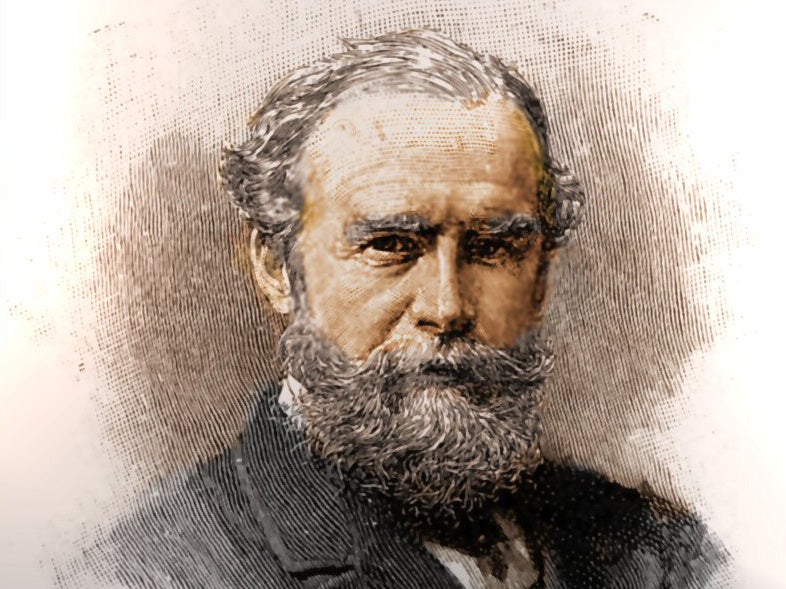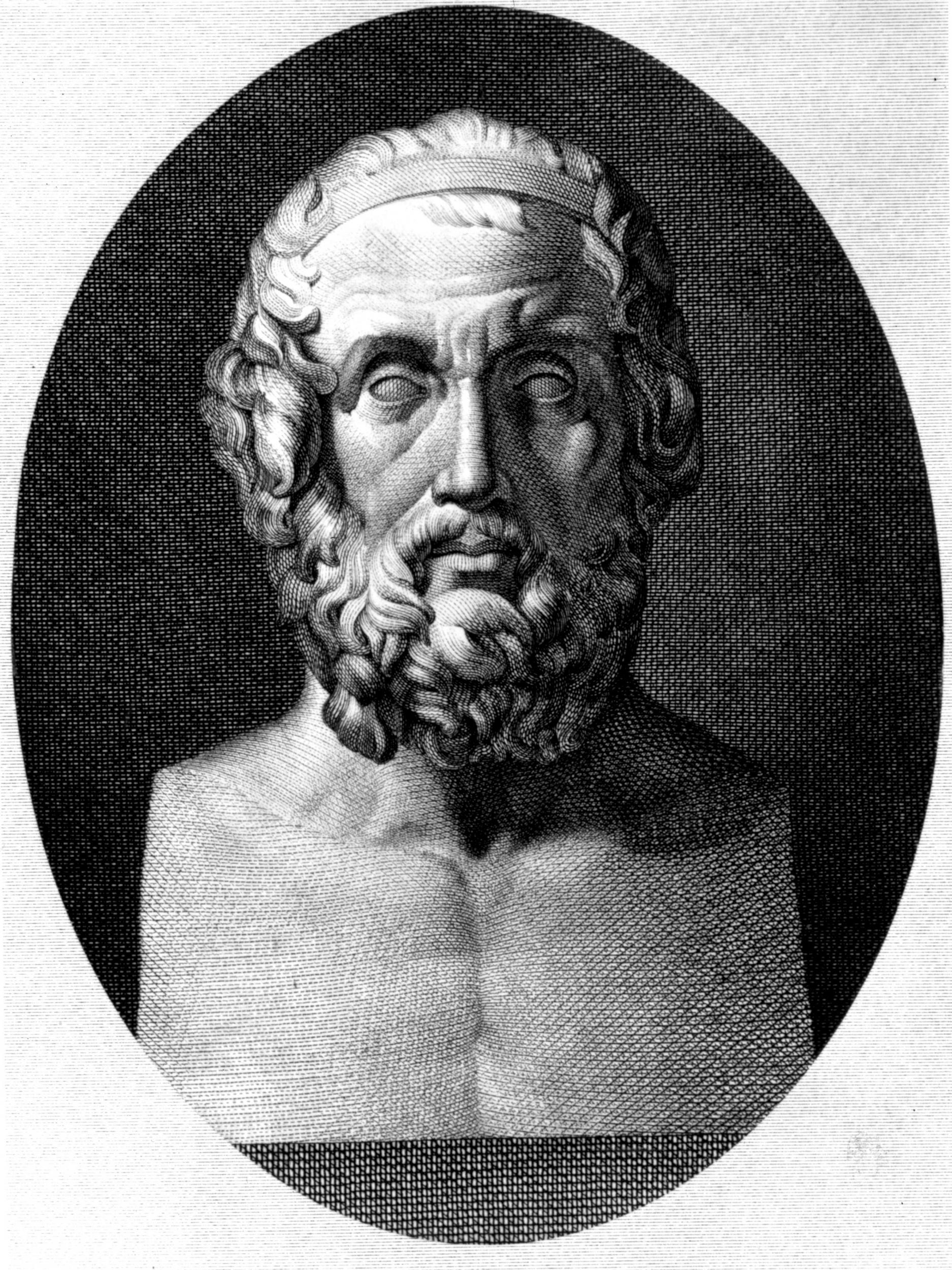The Book List: Meet Sir John Lubbock, Godfather of the must-read listicle
Every Wednesday, Alex Johnson delves into a unique collection of titles. This week he looks back at an MP’s musings that got the ball rolling

Your support helps us to tell the story
From reproductive rights to climate change to Big Tech, The Independent is on the ground when the story is developing. Whether it's investigating the financials of Elon Musk's pro-Trump PAC or producing our latest documentary, 'The A Word', which shines a light on the American women fighting for reproductive rights, we know how important it is to parse out the facts from the messaging.
At such a critical moment in US history, we need reporters on the ground. Your donation allows us to keep sending journalists to speak to both sides of the story.
The Independent is trusted by Americans across the entire political spectrum. And unlike many other quality news outlets, we choose not to lock Americans out of our reporting and analysis with paywalls. We believe quality journalism should be available to everyone, paid for by those who can afford it.
Your support makes all the difference.The Bible
The Meditations of Marcus Aurelius
Epictetus
Aristotle’s Ethics
Analects of Confucius
St Hilaire’s Le Bouddha et sa religion
Wake’s Apostolic Fathers
Thomas à Kempis’s Imitation of Christ
Confessions of St. Augustine (Dr Pusey)
The Koran (portions of)
Spinoza’s Tractatus Theologico-Politicus
Comte’s Catechism of Positive Philosophy
Pascal’s Pensées
Butler’s Analogy of Religion
Taylor’s Holy Living and Dying
Bunyan’s Pilgrim’s Progress
Keble’s Christian Year
Plato’s Dialogues; at any rate, the Apology, Phædo, and Republic
Xenophon’s Memorabilia
Aristotle’s Politics
Demosthene’s De Corona
Cicero’s De Officiis, De Amicitia, and de Senectute
Plutarch’s Lives
Berkeley’s Human Knowledge
Descartes’s Discours sur la Méthode
Locke’s On the Conduct of the Understanding

Homer
Hesiod
Virgil
Epitomized in Talboys Wheeler’s History of India, vols i and ii:
Maha Bharata
Ramayana
The Shahnameh
The Nibelungenlied
Malory’s Morte d’Arthur
The Sheking
Aeschylus’s Prometheus
Trilogy of Orestes
Sophocles’s Oedipus
Euripides’s Medea
Aristophanes’s The Knights and Clouds
Horace
Lucretius
Chaucer’s Canterbury Tales (Perhaps in Morris’s edition; or, if expurgated, in C Clarke’s, or Mrs Haweis’s)
Shakespeare
Milton’s Paradise Lost, Lycidas, and the shorter poems
Dante’s Divina Commedia
Spenser’s Faerie Queen
Dryden’s Poems
Scott’s Poems
Wordsworth (Mr Arnold’s selection)
Southey’s Thalaba the Destroyer, the Curse of Kehama
Pope’s Essay on Criticism
Essay on Man
Rape of the Lock
Burns
Byron’s Childe Harold
Gray
Herodotus
Xenophon’s Anabasis
Thucydides
Tacitus’s Germania
Livy
Gibbon’s Decline and Fall
Hume’s History of England
Grote’s History of Greece
Carlyle’s French Revolution
Green’s Short History of England

Lewes’s History of Philosophy
Arabian Nights
Swift’s Gulliver’s Travels
Defoe’s Robinson Crusoe
Goldsmith’s Vicar of Wakefield
Cervante’s Don Quixote
Boswell’s Life of Johnson
Molière
Sheridan’s The Critic, School for Scandal, and The Rivals
Carlyle’s Past and Present
Smiles’s Self-Help
Bacon’s Novum Organum
Smith’s Wealth of Nations (part of)
Mill’s Political Economy
Cook’s Voyages
Humboldt’s Travels
White’s Natural History of Selborne
Darwin’s Origin of Species
Naturalist’s Voyage
Mill’s Logic
Bacon’s Essays
Montaigne’s Essays
Hume’s Essays
Macaulay’s Essays
Addison’s Essays
Emerson’s Essays
Burke’s Select works
Voltaire’s Zadig
Goethe’s Faust, and Autobiography
Miss Austen’s Emma, or Pride and Prejudice
Thackeray’s Vanity Fair
Pendennis
Dicken’s Pickwick
David Copperfield
Lytton’s Last Days of Pompeii
George Eliot’s Adam Bede
Kingsley’s Westward Ho!
Scott’s Novels

Wherever you look there are endless listicles of the “1,001 Novels You MUST Read Before You’re 40” variety. We have the Godfather of the Best Books List to thank for setting this hare running: banker and philanthropist Sir John Lubbock (1834–1913). Though all but forgotten today, Lubbock was an important man, the MP responsible for introducing the Bank Holidays Act (1871), and as principal of the Working Men’s College in London, he gave a speech in 1886 in which he listed 100 books.
“I drew up the list,” he said, which excluded living authors, “not as that of the hundred best books, but, which is very different, of those which on the whole are perhaps best worth reading.” It was then published and became a bestseller, with a knock-on effect on the books mentioned. It is printed above, and in the order he listed the titles. His top 100 (which appears to be more like 100-ish on close inspection) was organised by category, eg philosophy, travel, history, but he was wary about a “science” section on the basis that “science is so rapidly progressive”.

Also, it is important to note that these were not personal favourites. “As regards the Shi King and the Analects of Confucius, I must humbly confess that I do not greatly admire either; but I recommended these because they are held in the most profound veneration by the Chinese race.” Following close on Lubbock’s coattails was Dean of Canterbury and Marlborough headmaster Frederic William Farrar, who wrote a series of monthly articles for The Sunday Magazine in 1898 along similar lines, though with rather more literature. But not everybody was a great fan of the concept. Oscar Wilde wrote to The Pall Mall Gazette in 1886 that a more important list would be the Worst Hundred Books, so readers would know what to avoid. He then suggested dividing books into three classes:
Books to read:
Cicero’s Letters, Suetonius, Vasari’s Lives of the Painters, the Autobiography of Benvenuto Cellini, Sir John Mandeville, Marco Polo, St Simon’s Memoirs, Mommsen, and Grote’s History of Greece.
Books to reread:
Plato and Keats
Books not to read at all:
Thomson’s Seasons, Rogers’s Italy, Paley’s Evidences, all the Fathers except St Augustine, all John Stuart Mill except the Essay on Liberty, all Voltaire’s plays without any exception, Butler’s Analogy, Grant’s Aristotle, Hume’s England, Lewes’s History of Philosophy, all argumentative books and all books that try to prove anything.
Philip Waller in his excellent book Writers, Readers and Reputations: Literary Life in Britain 1870–1918 writes that these kinds of “best books” lists seem to some people like a “chronic exercise in futility”.
‘A Book of Book Lists’ by Alex Johnson, £7.99, British Library Publishing
Join our commenting forum
Join thought-provoking conversations, follow other Independent readers and see their replies
Comments